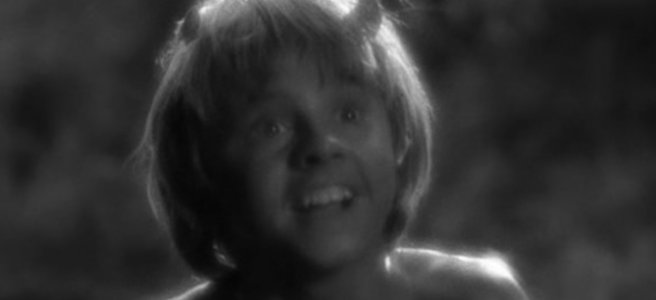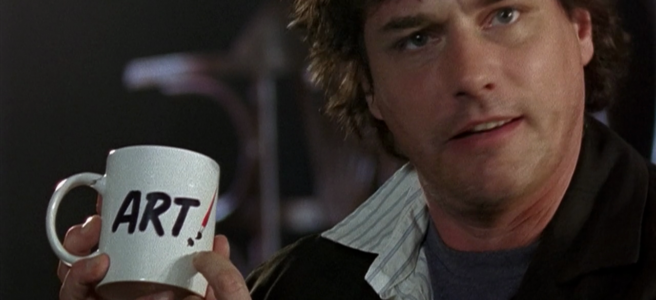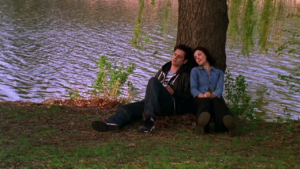There are many Shakespeare movies that I know about, have written about, have seen screenshots and clips of. But sitting through all of them is a challenge for many reasons. I’m slowly chipping away at a very long list. Happily, I can now move a certified classic to the WATCHED list.
Max Reinhardt’s 1935 production of A Midsummer Night’s Dream deserves its place in Shakespeare Film history. It picked up two Academy Awards (on four nominations) and featured a cast of names still known today – James Cagney, Olivia de Havilland, and Mickey Rooney to name just a few. Watching it now is a weirdly nostalgic experience for a Gen Xer like me. As we get to the big hysterical finish, all I could think of was how much it reminded me of watching the Three Stooges or Little Rascals. I can’t quite put my finger on it, but if you remember those shows (even if you watched them with your parents or grandparents!), maybe you’ll see what I mean.
Let’s talk about dreams for a second. They’re used in metaphors way too often. “Oh, this new job is a dream!” We use dream to mean “the ideal thing I wanted.” Not that. I mean real dreams. Real dreams to me are more like, “Nothing makes sense, and yet I’m oddly ok with all of it. Why am I suddenly back in high school, why are my coworkers here, why is there a freestanding toilet in the middle of the auditorium stage?” While you’re in the dream and not asking any of those questions, it all seems normal. Only after you step out and wake up do you think, “Well, that was weird.”
When I thought of that analogy for this movie, I intended it to be negative, but why not make a Dream movie that feels like a dream?
Let’s Make This More Visual

I’m sure many of us have seen productions of The Winter’s Tale, famous for its “Exit, pursued by a bear” stage direction, featuring no bear.
Not so fast! The forest of Athens seems to be home to actual bears now. My best guess is that somebody spotted Helena’s line, “No, no, I am as ugly as a bear; For beasts that meet me run away for fear:” and thought, “Ok, Helena is running away from a bear.”

“Now I will believe that there are unicorns!”
Unfortunately, that’s a line from The Tempest, not Midsummer. I have no idea how this one got here. The word unicorn doesn’t appear in the play that I can find.
How Were The Fairies
Now, let’s talk about the fairies. Most of the fairy budget was spent on Titania’s retinue. They sparkle, they glow, and they have lengthy dance numbers. At one point, they’re literally floating into the sky by the dozens:
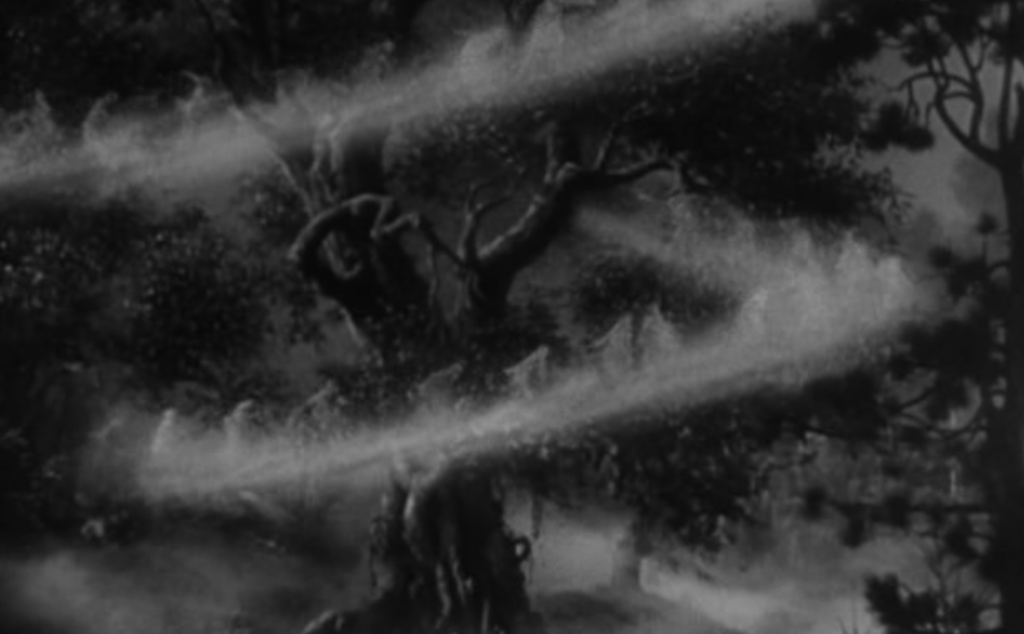
Wow! If this is the entrance for Titania, I wonder what Oberon’s entourage will look like?
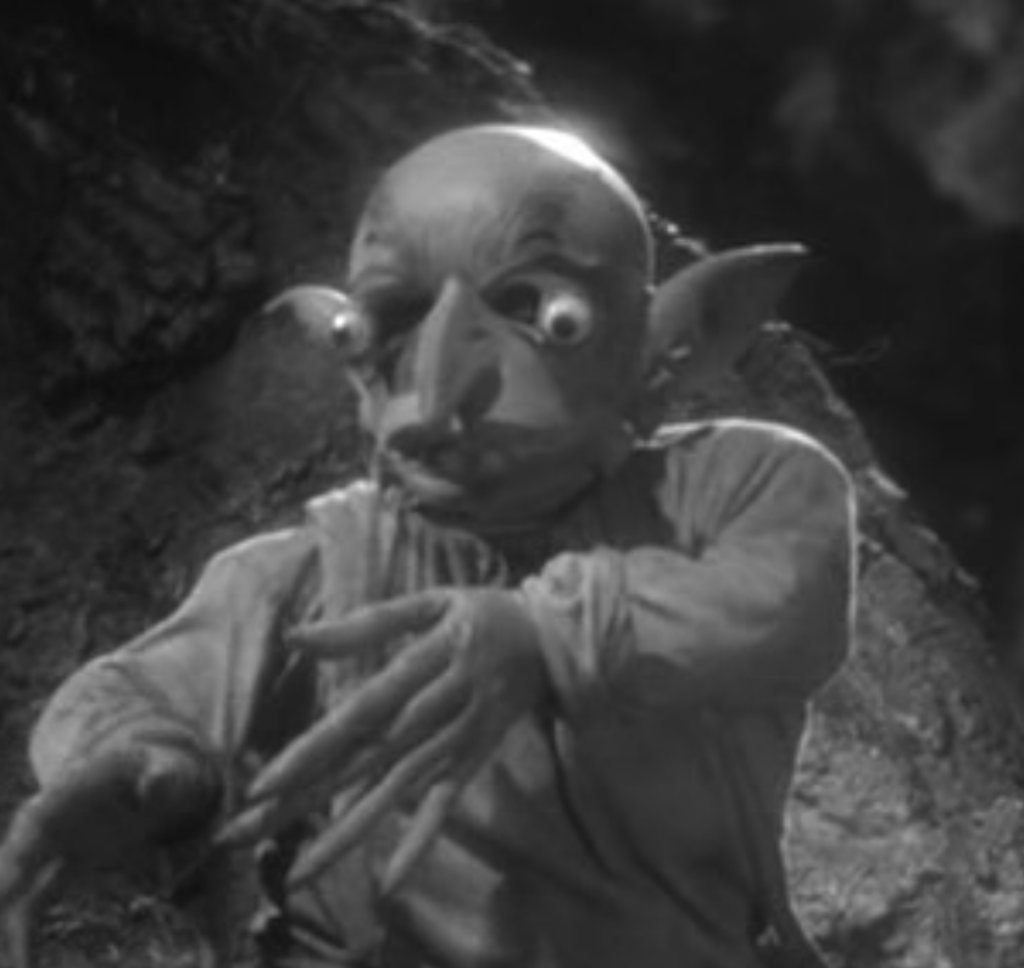
Uhhh… yeah. There’s a lot of these guys. They even have a band at one point, and you seriously wonder if the original Star Wars Cantina scene got the idea from this movie.
Later, though, they do get a costume change…
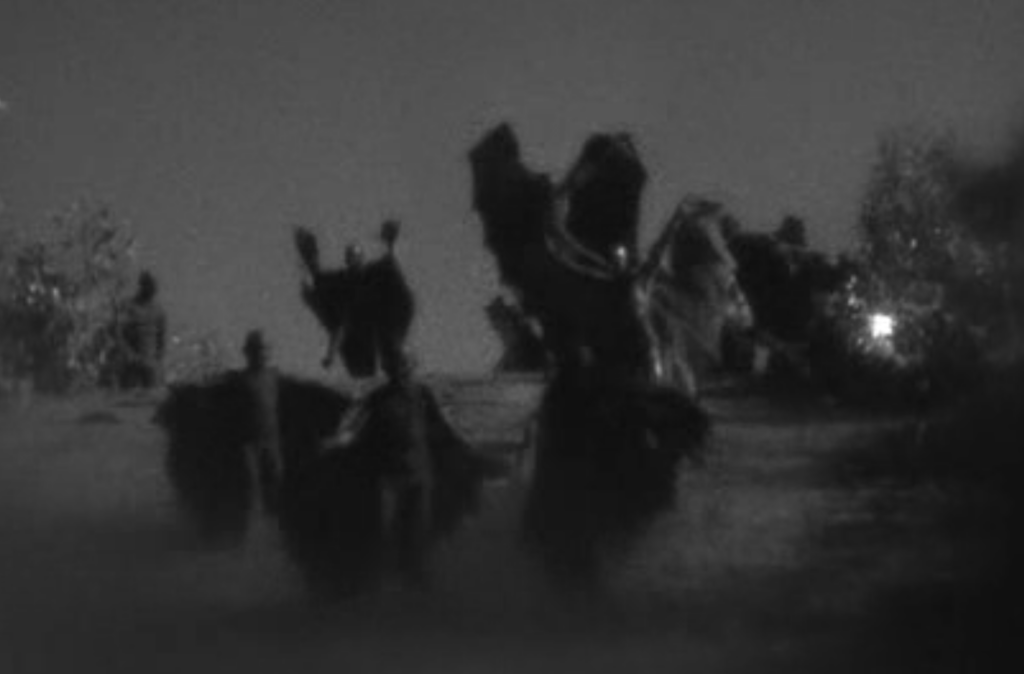
For some reason that I genuinely don’t understand, they suddenly all have wings. Black, scary wings. It’s very much like the part in The Tempest when Ariel suddenly transforms into a Fury, but I don’t recall such a scene in Midsummer. Just all of a sudden, they went from “little people in Halloween masks” to “I don’t know what’s going on but I don’t like it, keep those things away from me.”
What of our stars, Oberon and Titania?
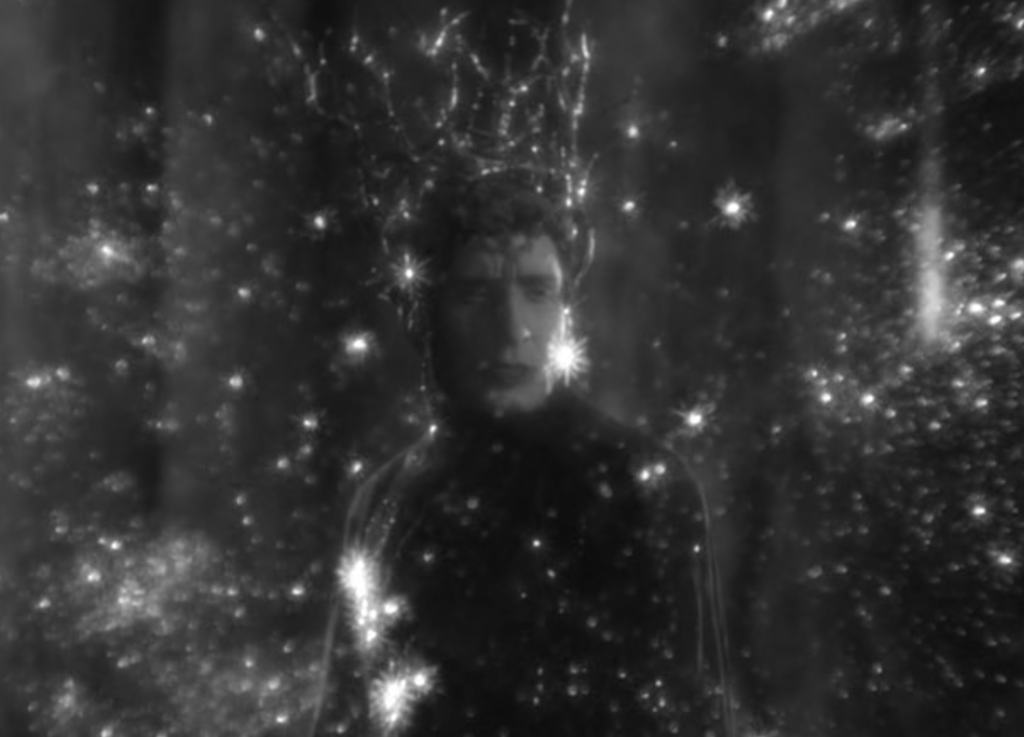
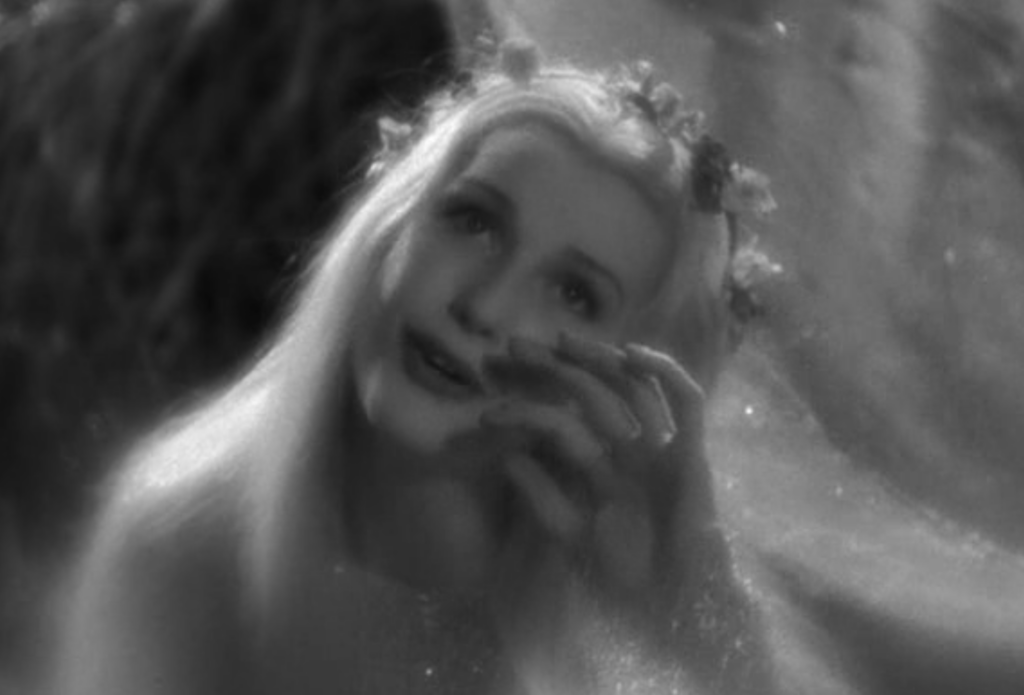
Oberon gets the better deal here. Titania gets to sigh and oooh and ahhh with hand on cheek a lot. She sounds a great deal like Glinda from Wizard of Oz. Oberon, meanwhile, is a walking special effect. Not only does he have this cool crown of branches (that, in fairness, reminds me of Groot from the Marvel movies), but he’s always surrounded by stars. This is another one of those dream-like things. Why are there stars around him? How are they there? Are they actual fireflies? Are they really there or an illusion? If he swatted at them would they move? We don’t get any answers, of course. This is just how he goes about life.
But that’s ok, Titania gets to one-up her Oberon…
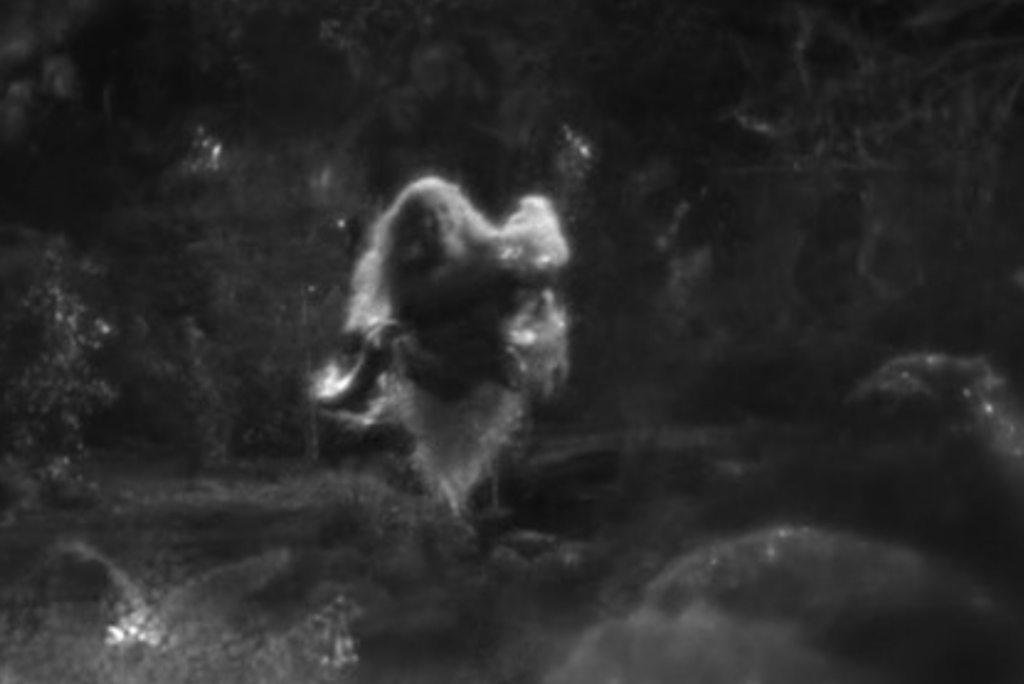
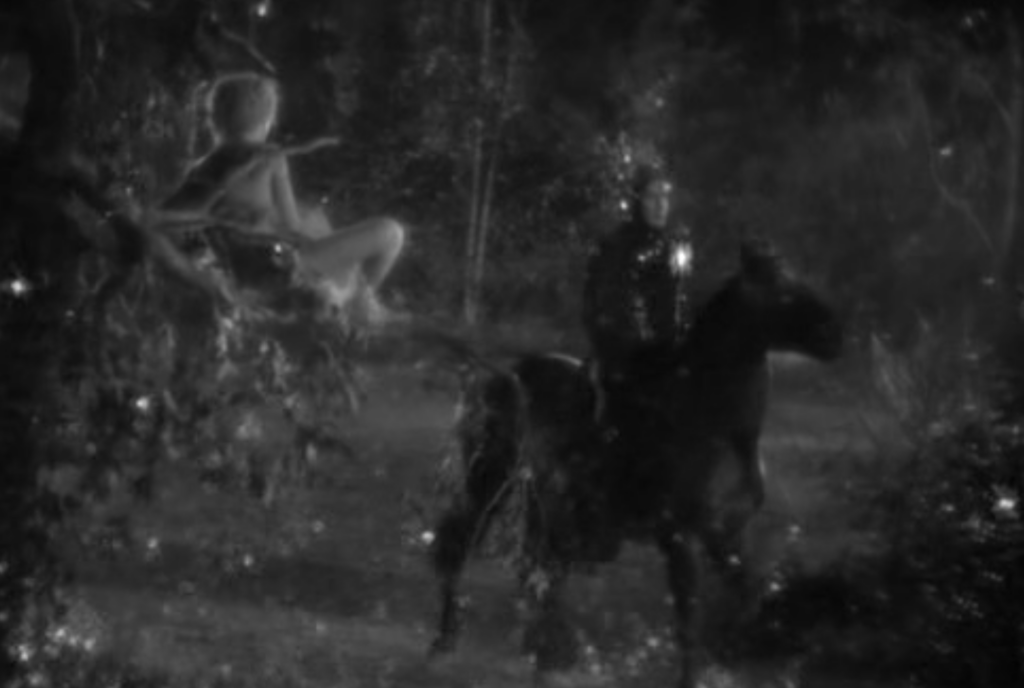
Titania flies wherever she wants. Oberon rides a horse. Again, there’s that dream world logic. Some people fly, some walk, some ride horses. But, are you ready for this?
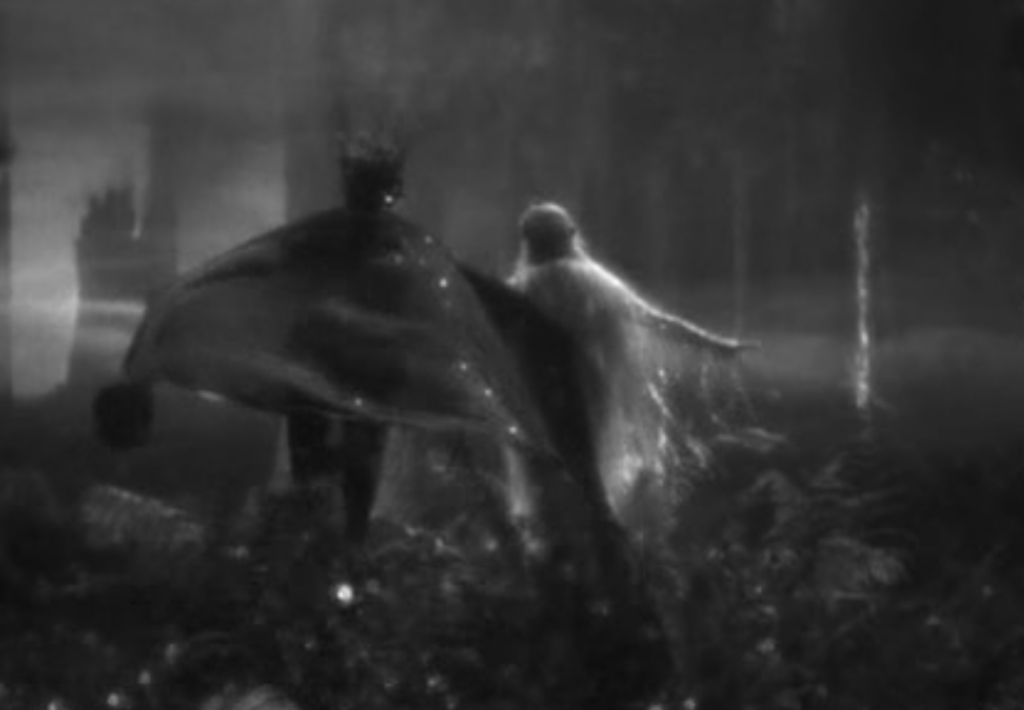
Oberon can fly, too. SO WHY IS HE RIDING A HORSE?
The Mickey Rooney Show
You can tell how old someone is by how they remember Mickey Rooney, a wonderful actor with a record-breaking career that includes credited roles in 10 decades, from the 1920s to the 2010s.
As our Puck, he was just 14 years old and honestly does a spectacular job for someone so young. There’s a lot of creative license in how to play Puck, and Rooney plays to his strengths. He’s a child, running around and causing mischief. When he’s in the mood to act like an animal, he makes animal noises. When he finds things entertaining, he laughs with genuine glee. When an adult tells him what to do, he enthusiastically goes about trying to do it properly, though he doesn’t always succeed. All while delivering a lot of Shakespeare, in makeup and costume. Sometimes he flies. According to the trivia he actually spent much of production with a broken leg and had to be wheeled around the set!
Experience It For Yourself
Honestly, just see this one if you can. There are places where you really think you’re watching Mystery Science Theatre 3000 and the entertainment is to be found in mocking how bad it is (seriously, I can’t do justice to the “goblin fairies’). There are random ballet sequences just inserted at will. The special effects deserve their own award for just how broad a spectrum they covered. People fly, people fade in and out of existence, Bottom transforms back and forth before our eyes. Then there are the dimestore masks, and this fairy being carried off into the sunset:
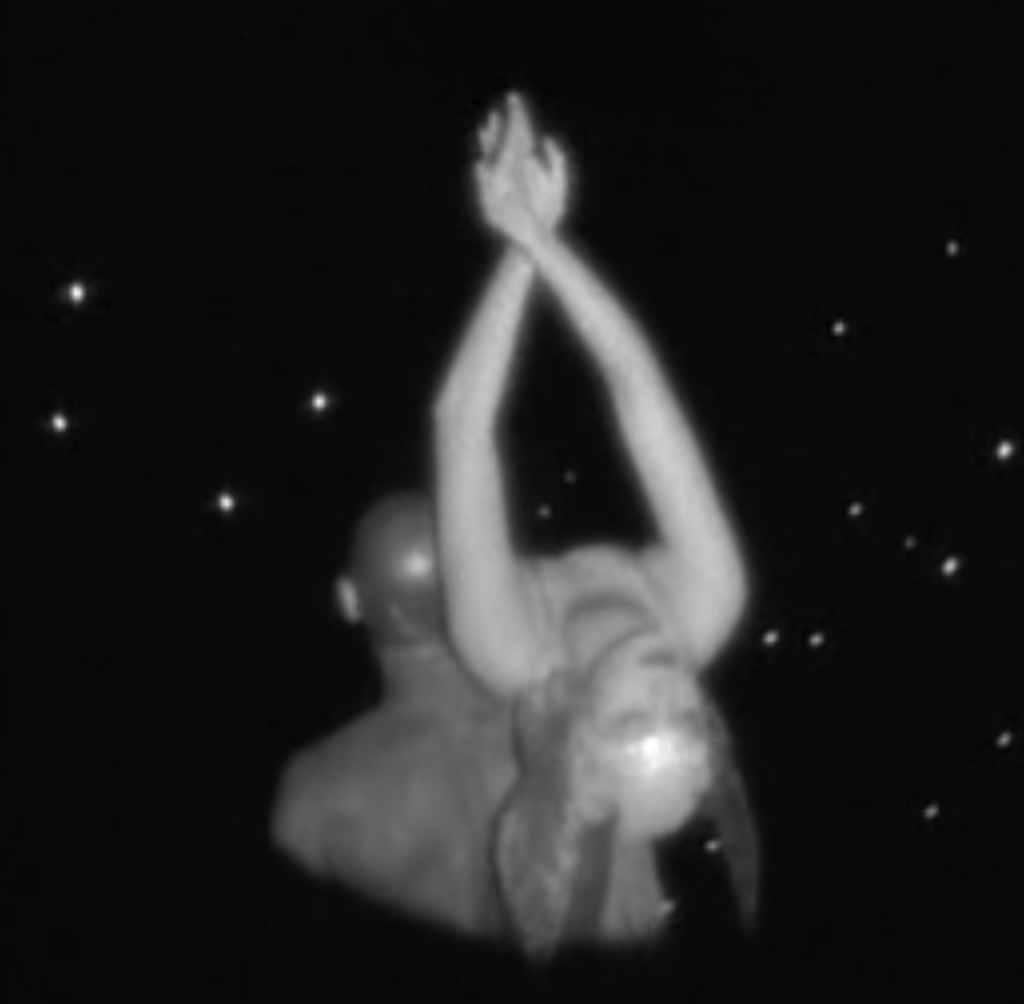


I repeat, it’s like a dream. When it’s done you’re left thinking, “What in the world was that? Did it make sense or not? I can’t really tell.”

